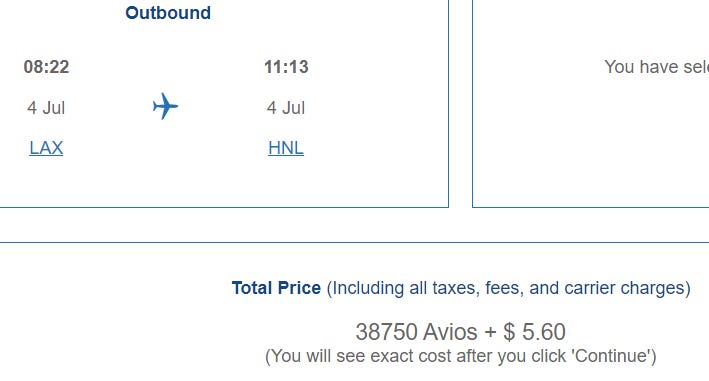This is Life Amplified, a newsletter about thoughts on life, business, travel, and upgrading it all.
In this issue:
Life update
Competing philosophies on charity
Preparing for a summer of travel
I’m also taking requests! Anything you want me to write about? Topics, travel plans, deals, etc. Submit here.
Life Update
I’m running the Big Sur marathon this month! I’m raising $1,700 for the Organization for Autism Research, which has a perfect rating from the charity accountability rating Charity Navigator (high rating = high efficiency = high impact). If everyone reading this newsletter donated $1, we’d more than hit our goal. Please consider donating! Link is here!
In other news, I recently received a (small!) grant from Stanford to keep working on the issues from my New York Times Guest Essay last September. I’ve been struggling since them wondering how to allocate my time, but I decided I couldn’t let the issue remain.
Competing philosophies on charity
I am obsessed with Mackenzie Scott. In case you missed it, Mackenzie Scott divorced Jeff Bezos and pledged to donate her money—all $52 billion of it. In the last two years alone she’s donated $12 billion. These aren’t far away commitments; wires are hitting bank accounts daily. She’s donating to all types of organizations—HBCUs to Boys & Girls Clubs to local healthcare nonprofits.
This stands in stark contrast to philanthropy we’re familiar with from High Net Worth (HNW) individuals. Perhaps the most famous approach is the Bill & Melinda Gates Foundation. Sure, all the money is being donated, but the control is still there. And exercising control comes at the expense of speed, but does it also come at the expense of impact?
Most modern HNW donors made their wealth through some form of capitalism. In 1982, just 37% of the Forbes 400 (list of billionaires) were self-made. Last year, 84% of the 493 newcomers on that list were self-made (and 90% for the Americans on that list)1. The super-rich are becoming less dynastic by the day, and more capitalistic.
The effects this has on philanthropy are stark. First, we know from research that self-made billionaires are 3-4x more likely to donate their money compared to inherited wealth2. But, how are those donations being executed? It’s not just Bill & Melinda Gates—Warren Buffett has donated over $40 billion, but focused on just five foundations since 20063, two of which bear his last name and another of which is the Gates Foundation.
That’s why the approach Mackenzie Scott is taking is so stark. Her $12 billion has been scattered across 1,257 organizations globally. In her Medium post from March 23rd announcing another $4 billion in gifts, she remarked:
Even people who spend years learning about the same problem will disagree on the best approach…we don’t assume that we, or any other single group, can know how to fix it. We don’t advocate for particular policies or reforms. Instead, we seek a portfolio of organizations that supports the ability of all people to participate in solutions…
The leadership of people directly experiencing inequities is essential, both because it is informed by insights no one else can contribute, and because it seeds power and opportunity within the community itself. Yet only a tiny fraction of global humanitarian assistance today is given directly to local and national organizations…
This is a radically different approach. Instead of creating an organization with her name, creating new overhead, and seeking to solve her passion issues, she’s enabling hundreds of thousands of community members across the world who know their community, know their issues, and have dedicated their lives to it.
Putting it in business terms, it’s essentially stock picking vs. index investing. A large body of research supports that for the average investor, picking a random group of stocks (index investing) will drive the best average return vs. trying to pick specific winners. Mr. Buffett himself famously won an almost decade-long bet on this. Now, HNW individuals are not “average investors”, but there’s countless stories of HNW individuals investing poorly. Does investing in impact have similar return functions?
The global wealthy (not just billionaires, likely you too) has been actively consumed by this need to treat philanthropy in capitalistic terms. We know efficient businesses and so we want efficient uses of philanthropy. I’m not arguing that seeking efficiency is bad—we should actively diminish charities that are ineffective and bloated in favor of those that accomplish. But when we take that fear to the extremes in the pursuit of effective altruism, so worried that our dollars are going to be put to the highest use that we wait for the perfect opportunity, we all lose. The perfect opportunity will never come, and the problems are here, now.
P.S. If you’re wondering how Mackenzie donates all this money so quickly, let me introduce you to the consulting firm Bridgespan (which executes a lot of her giving).
Preparing for a summer of travel
How to book flights right now
A friend told me recently that they spent $1,000 on an NYC-Charleston flight. WHAT? Prices are skyrocketing as demand returns, so let me introduce you to the suite of tools I use to book a flight (yes, I look at all of them each time):
For cash: Google Flights + Southwest.com + Hopper
For awards: Awardhacker + United + Aeroplan + Lifemiles + Alaska + British + AA + (rarely) Delta + (new) point.me
General rules: For domestic flights, one-ways are ideal. There’s rarely discounts for round-trips. For international, one-ways almost never work for cash. There’s a lot of math behind why that is (essentially risk that a plane isn’t full both legs of long routes).
Helpful tips: Find cities on Google Flights that expand your range of airports. For example, searching “San Francisco” often only gives you SFO, but searching “Fremont” gives you SFO, OAK, and SJC.
New: point.me is a new website that searches all flight awards for you, for a fee. It’s worth the $5 to check it out.
What makes a good deal? Explaining cost-per-point
I often get asked what’s a “good deal”. Truthfully, it’s up to you. If you don’t want to spend the money, then use points. For hotels, I generally try to get >1.5 cents (for Hyatt it’s >2 cents). For airlines, it’s >2 cents.
This is a game though, and I’ve gotten >10 cents per point before. Why? Hotels and airlines usually charge within a limited range for points, but prices can have much wider spreads. Let’s take Alila Ventana Big Sur, one of Hyatt’s best hotels. They charge 40,000 points a night (the max they charge for any hotel’s base room). But cash rates are regularly $2,200/night. That’s 5.5 cents per point! Another of Hyatt’s hotels is the Nimb Hotel in Copenhagen, which also charges 40,000 points a night, but cash rates are $500/nt. That’s 75% worse.
And there are some straight rip-offs in the industry. Worst of all are Hilton and Delta. Both regularly try to get you to spend points below 0.5 cents per point. Don’t fall for it.
The best value is typically with business and first class flights. Fly Lufthansa First Class with Avianca LifeMiles, transferred from AmEx? You’re getting over 10 cents per point. Remember, start with awardhacker.com first for flights.
British Avios 40% AmEx bonus + New Qatar partnership
AmEx currently has a 40% bonus transfer to British Airways. What’s more is Qatar Airways just joined the same loyalty program as British, so technically you can also transfer to Qatar! You don’t even need to fly internationally; BA often has a lot of AA award space. As an example, want to fly AA business class to Hawaii this summer?
It’s on an American Airlines plane, and BA is charging 38,750 Avios. With the 40% bonus, you just need 27,678 AmEx points. The cash equivalent on Google flights is $1,375…that’s 5 cents per point!
(But here’s a niche tip: If you’re flying to Hawaii, there’s no better way than using Turkish miles transferred from Citi to fly United. Confusing, I know.)
Have AA or Delta status? Get Star Alliance status for free
ANA, the Japanese airline, is offering status match to AA and Delta fliers with status. If you match, you can get free Star Alliance status (that you can use flying United, including access to United clubs!) through March 2023. Sign up here.
Expect in-flight wifi to get much cheaper from here
Delta’s CEO said in 2019 that they expected wifi to be free for all flights in the near future. We’re starting to see movement everywhere. Alaska announced on all their flights that wifi will be $8. United similarly has announced $8 for all North American flights. I’m just sad I won’t have an excuse to not work on planes anymore :(
Referral links (just in case you ever need them)
I hope whatever you’re doing, wherever you’re at in your life this week, you’re finding some way to give back to your community. Over and out—Drake.
https://www.forbes.com/sites/randalllane/2021/04/06/operation-wealth-speed-what-a-record-number-of-new-self-made-billionaires-says-about-capitalism/?sh=7d4b274b45fa
https://freepolicybriefs.files.wordpress.com/2014/01/freepolicybrief_jan27.pdf
https://www.berkshirehathaway.com/news/jun2321.pdf




